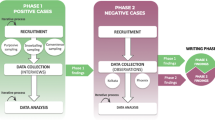Abstract
This chapter deals with the Manifesto’s principle of self-organizing teams. In recent work, the authors examine the state of practice using data from a study of software professionals in Switzerland, especially addressing the issue of overall satisfaction. The chapter reveals that the most striking correlation to satisfaction is the level of adoption of self-managing teams, whereas the strongest hindrances to satisfaction are a lack of ability to change the organizational culture and lack of management support. The analysis shows that technical and collaborative practices were related to self-organization and satisfaction, but were not able to explain satisfaction by themselves. Even with strong technical and collaborative practices, however, satisfaction is not assured, demonstrating that goals of creating timely and successful products and services matter.
Access this chapter
Tax calculation will be finalised at checkout
Purchases are for personal use only
Similar content being viewed by others
References
Agile Manifesto Signatories. (2001). Agile Manifesto. http://agilemanifesto.org. Accessed 11 Nov 2020.
Barker, J. R. (1993). Tightening the iron cage: Concertive control in self-managing teams. Administrative Science Quarterly, 38(3), 408–437. https://doi.org/10.2307/2393374.
Beck, K. (2000). Extreme programming explained: Embrace change. Addison-Wesley Longman Publishing.
Beck, K., & Andres, C. (2004). Extreme programming explained: Embrace change. Addison-Wesley Professional.
Derby, E., Larsen, D., & Schwaber, K. (2006). Agile retrospectives: Making good teams great. Pragmatic Bookshelf.
Digital.ai Inc. (2020). 14th Annual state of Agile report. https://stateofagile.com. Accessed 11 Nov 2020.
Gossage, S., Brown, J. M., & Biddle, R. (2015). Understanding digital cardwall usage. In 2015 Agile Conference (pp. 21–30). https://doi.org/10.1109/Agile.2015.16.
Hoda, R., Noble, J., & Marshall, S. (2012a). Developing a grounded theory to explain the practices of self-organizing Agile teams. Empirical Software Engineering, 17(6), 609–639. https://doi.org/10.1007/s10664-011-9161-0.
Hoda, R., Noble, J., & Marshall, S. (2012b). Self-organizing roles on Agile software development teams. IEEE Transactions on Software Engineering, 39(3), 422–444.
Kropp, M., & Meier, A. (2012). Swiss Agile study 2012. ISSN: 2296–2476.
Kropp, M., & Meier, A. (2015). Swiss Agile study 2014. ISSN: 2296–2476.
Kropp, M., & Meier, A. (2017). Swiss Agile study 2016. ISSN: 2296–2476.
Kropp, M., Meier, A., & Biddle, R. (2016). Agile practices, collaboration and experience: An empirical study about the effect of experience in Agile software development. In P. Abrahamsson, A. Jedlitschka, A. Nguyen Duc, M. Felderer, S. Amasaki, & T. Mikkonen (Eds.), Product-focused software process improvement: 17th international conference, Profes 2016, Trondheim, Norway, November 22–24, 2016, Proceedings 17, 416–431. https://doi.org/10.1007/978-3-319-49094-6_28.
Kropp, M., Meier, A., Anslow, C., & Biddle, R. (2018). Satisfaction, practices, and influences in Agile software development. In Proceedings of the 22nd International Conference on Evaluation and Assessment in Software Engineering (pp. 112–121).
Kropp, M., Meier, A., Anslow, C., & Biddle, R. (2020). Satisfaction and its correlates in Agile software development. Journal of Systems and Software, 164. https://doi.org/10.1016/j.jss.2020.110544.
Martin, A., Noble, J., & Biddle, R. (2009a). XP customer practices: A grounded theory. In AGILE Conference (pp. 33–40). https://doi.org/10.1109/AGILE.2009.68.
Martin, A., Noble, J., & Biddle, R. (2009b). The XP customer team: A grounded theory. AGILE Conference, 57–64. https://doi.org/10.1109/AGILE.2009.70.
Meier, A., Kropp, M., Anslow, C., & Biddle, R. (2018). Stress in Agile software development: Practices and outcomes. In J. Garbajosa, X. Wang, & A. Aguiar (Eds.), Agile processes in software engineering and extreme programming (pp. 259–266). Springer International Publishing.
Schwaber, K., & Beedle, M. (2002). Agile software development with Scrum. Prentice Hall.
VersionOne Inc. (2006). The state of Agile development. https://www.infoq.com/news/versionone-agile-survey/.
Whitworth, E. (2006). Agile experience: Communication and collaboration in Agile software development teams. Master’s thesis. Carleton University.
Whitworth, E., & Biddle, R. (2007a). Motivation and Cohesion in Agile teams. In G. Concas, E. Damiani, M. Scotto, & G. Succi (Eds.), Agile processes in software engineering and extreme programming (pp. 62–69). Berlin, Heidelberg: Springer Berlin Heidelberg.
Whitworth, E., & Biddle, R. (2007b). The social nature of Agile teams. In J. Eckstein, F. Maurer, R. Davies, G. Melnik, & G.Pollice (Eds.), AGILE 2007, 26–36. Los Alamitos: IEEE. https://doi.org/10.1109/AGILE.2007.60.
Acknowledgments
We especially thank the Swiss Agile Study participants for their most valuable responses, and the Swiss IT organizations swissICT and SWEN for supporting and funding the studies.
Author information
Authors and Affiliations
Corresponding author
Editor information
Editors and Affiliations
Rights and permissions
Copyright information
© 2021 The Author(s), under exclusive license to Springer Nature Switzerland AG
About this chapter
Cite this chapter
Biddle, R., Kropp, M., Meier, A., Anslow, C. (2021). Agile Software Development: Practices, Self-Organization, and Satisfaction. In: Pfeiffer, S., Nicklich, M., Sauer, S. (eds) The Agile Imperative . Dynamics of Virtual Work. Palgrave Macmillan, Cham. https://doi.org/10.1007/978-3-030-73994-2_3
Download citation
DOI: https://doi.org/10.1007/978-3-030-73994-2_3
Published:
Publisher Name: Palgrave Macmillan, Cham
Print ISBN: 978-3-030-73993-5
Online ISBN: 978-3-030-73994-2
eBook Packages: Social SciencesSocial Sciences (R0)




